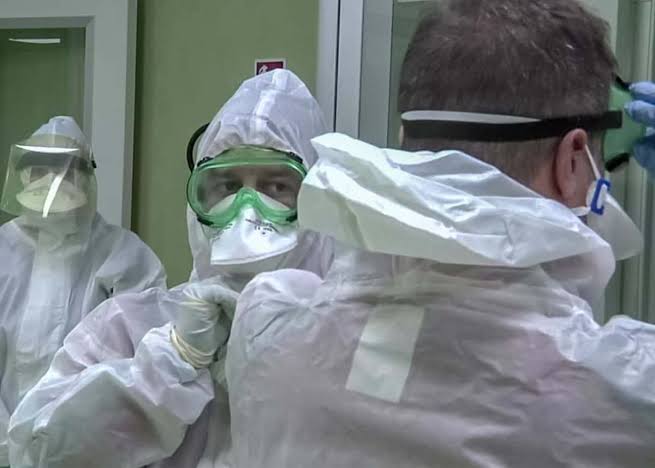New Deadly Virus Sparks Global Alarm: Nigeria Quarantines Passengers from China
New Deadly Virus Sparks Global Alarm: Nigeria Quarantines Passengers from China
By Achimi Muktar
Amid a surge of respiratory infections linked to the Human Metapneumovirus (HMPV) in China, Nigeria's Federal Government has ramped up its surveillance measures to prevent the virus from crossing its borders. The move follows growing international concern as hospitals in northern Chinese provinces struggle with overcrowding and social media videos reveal the gravity of the situation.
The Nigerian government announced plans to activate enhanced monitoring protocols for passengers arriving from China, including potential quarantine measures, as the respiratory virus wreaks havoc on vulnerable populations, particularly children.
A Familiar Threat with New Challenges
HMPV, though not new, has seen a troubling resurgence this winter, especially among children under 14 years in China. Unlike COVID-19, which led to a global pandemic, HMPV typically causes milder symptoms akin to the flu or common cold. However, its rapid spread and severe impact on certain groups, including children, the elderly, and immunocompromised individuals, have raised alarms.
Chinese health authorities have downplayed the situation, labeling it as a typical winter occurrence. However, neighboring countries like Taiwan, Hong Kong, and Cambodia have issued warnings, with Taiwan's Centers for Disease Control highlighting the heightened risks to children and vulnerable individuals.
Nigeria’s Proactive Response
Dr. John Oladejo, Director of Special Duties at the Nigeria Centre for Disease Control and Prevention (NCDC), confirmed that preventive measures, including heightened surveillance, are underway to curb the potential spread of HMPV in the country.
Experts in Nigeria have commended the government’s proactive stance, emphasizing the importance of continuous vigilance. Dr. Moses Adewumi, a virologist at the University College Hospital in Ibadan, stressed the need for ongoing surveillance, noting that previous outbreaks often caught countries off guard due to lapses in monitoring.
“It’s crucial that surveillance becomes a permanent feature of our health system,” Adewumi said. “The surge in cases may indicate a new variant of HMPV, which makes continuous monitoring even more important.”
Lessons from COVID-19
Five years after the onset of the COVID-19 pandemic, the world remains wary of another global health crisis. With over 777 million infections and more than seven million deaths attributed to COVID-19, HMPV serves as a stark reminder of the need for preparedness.
The World Health Organization (WHO) has urged countries to adopt preventive measures, including vaccination against respiratory illnesses, maintaining good hygiene, and wearing masks in crowded spaces. While WHO has not recommended specific travel restrictions, it has called for vigilance and early detection to prevent outbreaks.
Experts Sound the Alarm
Medical experts are urging Nigeria to act swiftly. Dr. Oladipo Kolawole, an infectious diseases specialist, praised the government’s decision to monitor passengers from China but stressed the importance of further measures, including quarantine protocols and public awareness campaigns.
“Early detection is key to managing outbreaks effectively,” Kolawole said. “By screening travelers and isolating potential cases, we can significantly reduce the risk of community transmission.”
The Global Context
HMPV, first identified in Pakistan in 2001, has caused outbreaks primarily in Asia. Its current resurgence in China has drawn comparisons to the early days of COVID-19. Neighboring countries are already implementing measures to prevent its spread, with Cambodia and Hong Kong issuing warnings and increasing health screenings.
In India, health officials have urged calm, describing HMPV as similar to other respiratory viruses, but they acknowledge the need for vigilance.
What’s Next for Nigeria?
As Nigeria tightens its borders against the threat of HMPV, the focus remains on early detection, effective containment, and public education. The government’s swift action and collaboration with health experts aim to prevent a repeat of the chaos witnessed during the COVID-19 pandemic.
For now, the message is clear: vigilance, not panic, will keep Nigeria ahead in the fight against this new respiratory virus.


















